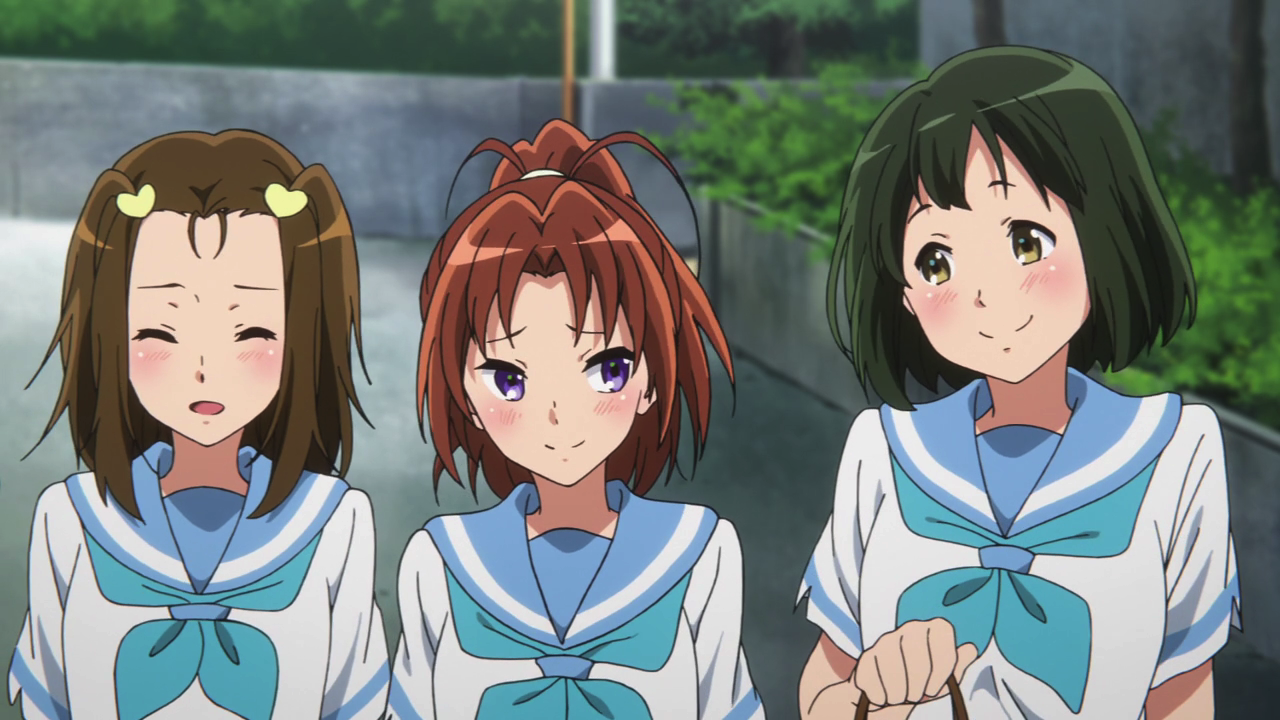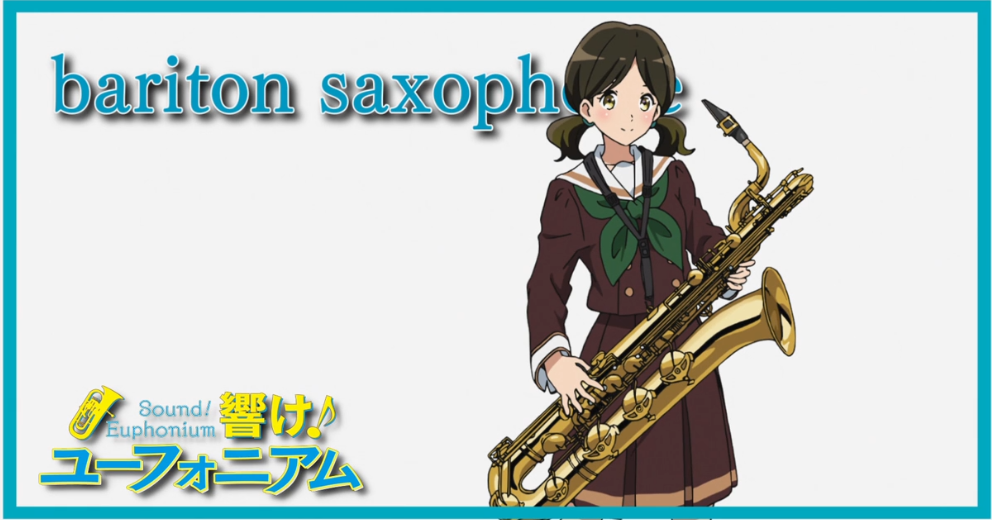According to MyAnimeList, I have watched 268 different anime productions and counting. While it is worth noting that this list includes movies, specials, spin-offs, and even different seasons within the same franchise as separate entries (to the point where Dragon Ball takes up 24 different slots on the list and Pokemon takes up 26) and that I didn't finish every single one of these anime, that is still a lot of anime. And I can confidently say that every single one of them means something to me. Even if the anime isn't any good and doesn't appeal to me and is called Island, I have some sort of connection to it and I'm grateful for watching it because it has either resonated with one of my values or experiences, challenged my views or beliefs, or reassured me that I'm not utterly devoid of taste. And recently, I finished the first season of a particular anime that resonated very strongly with me, despite the fact that I don't think it's any better than just okay as a work of narrative art, simply because it spoke to experiences that I have had as a teenager and instilled a sense of nostalgia in me. And that show is Sound Euphonium.

Sound Euphonium is a Spring 2015 slice of life drama series focusing on the development of a high school concert band as they prepare for an inter-school competition. When this show was airing, I was still only just easing myself back into anime and I still didn't know what Crunchyroll was. Nevertheless, I was still trying to learn more about modern anime by looking up reviews and analysis on YouTube, and Euphonium was quickly establishing a cult status among the community at the time. It is a rather popular show, with 216,000 users having it on their MAL lists and 3,500 listing it as one of their favorites, but never reaching the levels of popularity as its contemporaries like Food Wars, Is it Wrong to Pick Up Girls in a Dungeon?, and Seraph of the End, and it's easy to see why. While it does appeal to a niche hobby, thus limiting its broad appeal, it still has aesthetically pleasing character designs for fans of cute anime girls, a competition based narrative that can resonate with fans of similar anime about other interests or hobbies, and is staffed by the quickly-approaching-legendary-status Kyoto Animation for the true animation enthusiasts. Additionally, it has a similar premise to the legendarily popular and influential K-ON, a slice of life comedy series from Kyoto Animation focusing on a group of high school girls that form an amateur rock band, so fans of K-ON may be drawn to Euphonium looking for something similar. Thus, instead of appealing to one small audience, Euphonium appeals to five different small audiences that may or may not have significant overlap. Appealing to all of these demographics and executing well, while still not aiming for mass market appeal, is what leads to this cult status.
And like any cult show, the fans of Euphonium were talking this show up and trying to convince anyone they could to watch it. And it was in this context that I was first exposed to the existence of Sound Euphonium. I found YouTube video after YouTube video telling me how great it was and why I should watch it. And when I heard the word "Euphonium" in the title, I was immediately intrigued. I played saxophone from fourth grade all the way up to my high school graduation, and it was a major part of my formative years. The chance to see an anime that explores what it is like to play in a high school band was inherently appealing to me, at least on a conceptual level. And now that I've finally watched the first season of it, I can safely say that I was only mildly pleased with it. While I enjoyed the overall story, only one character ever truly stood out to me as one that I'd say is truly great (I'll get to him later) and the moments where I was emotionally engaged beyond the point of mildly entertained were few and far between. The animation succeeds on a technical level, but I was left confused by a lot of the visual direction choices and often struggled to understand what might be happening at a thematic level as a result. I was very happy that the plot never strayed away from the band's efforts of winning the music competition, but also frustrated that the songs that characters spend so many episodes practicing are never played in full without interruption or cutting away to another scene. Compared to a show like Yuri On Ice, which shows the entirety of every figure-skating routine, the concert that serves as Euphonium's season finale feels like a letdown. All in all, Sound Euphonium should be a 6/10. Yet I have it as a 7/10 on MyAnimeList. Why?
Well, it's like I said before: the show had scenes that spoke to real experiences in my life, and those scenes all come back to the lone great character of Sound Euphonium: the new music instructor and conductor Noboru Taki, pictured above in his defining moment as a character, setting up the central conflict the band as a whole will face. Taki is faced with the daunting task of nurturing the talents and passions of a group that has largely lost their enthusiasm for music, regularly slacking on practice and treating rehearsals as a social event, with the exceptions of a few passionate seniors and the optimistic freshmen. The question that Taki must answer then, is how can he change a culture of laziness and push his students to be the best musicians they can be? His solution is simple, yet brilliant: trick them into wanting to practice by manipulating the unique group psychology of teenagers.
On his first day on the job, Taki asks his students a simple question: "What is our goal for this year?" He gives them a fundamental choice that will set the tone of their work as an ensemble: Should they aim to win the national competition, or should they just focus on having fun and making good memories? By leaving the choice to the students, Taki sets a trap. While the majority of veteran band members have no interest in the hard work necessary to reach the level of national champions in anything, the nature of an open vote on the matter creates pressure on them. If they did admit that they wanted to take it easy, the students would be admitting to an image of laziness and cynicism instead of hardworking and passionate, and to a teenager: maintaining a positive image, in the eyes of both authority figures and their peers, is everything. With the trap set, Taki subtly convinces the majority of the band to vote for pursuing a national title, with only one student seeing through his trickery and voting for what she actually wants.
But Taki's job is not yet done. Even though he's tricked the band into agreeing on a unifying goal built on self-improvement and hard work, the fact remains that most of the members who voted for competition were only saying what they think they were supposed to say. So he enacts the next step of his plan: he gives the band a very simple piece of music - the Marine's Hymn (which is one of the first songs I learned on saxophone) - and tells the band president to let him know when they were ready to perform the piece as an ensemble. And then he just walks out of the music room, and leaves the band to its own devices. And, as the old saying goes, when the cat is away, the mice will play.
 |
| Literally. These kids are playing games instead of playing instruments. |
Eventually, though, the amount of time that the band is spending unsupervised becomes worrisome when the annual marching band Sun Festival starts to loom over them and their instructor still hasn't worked to prepare them for the event in the slightest. So even though the majority of the band has only put in the absolute bare minimum of work or practice into their assignment, the president is convinced to tell Taki that they are ready to show him what they've got.
And they suck. There are audible mistakes in their technique (complete with cringe-worthy squeaks), individual members are playing too fast or too slow, and the group just overall fails to come together to create a unified sound, which is the single most fundamental and most important aspect to group musical performance. And when Taki tells the band this, they naturally get defensive and complain, and it's not long until Taki is attacked and asked why he isn't doing his job and preparing for the Sun Festival. Taki's response basically can be summarized as: "I thought you guys wanted to compete in nationals? What does the Sun Festival have to do with this goal? Why should I let you guys perform in a festival when you're just going to embarrass yourselves?"

And this was the moment when Noboru Taki moved from being a mildly interesting character in a mediocre cast to becoming a truly great cast and the main reason why I kept watching the series. By setting things up to play out in this manner, Taki demonstrates an understanding of adolescent psyche and unites the band in a common goal: to prove him wrong. By embarrassing the group and threatening to take away the chance to perform, Taki has demonstrated their weakness and motivated them to improve. Notably, since he has already taken them down a peg and demonstrated why they need to take things seriously, he actually begins to take an active role in training his students. And, one week later, the band demonstrates to his satisfaction that, while they still need to refine their sound, they are capable of performing as a unit.
And while all of this is brilliant character writing and a good introductory arc, this story isn't the moment where Sound Euphonium resonated with me enough to bump it up a rating and truly "transcend meh" as the title of this post represents. Rather, it is in an individual character's reaction to these events that I was able to draw parallels to one of my own experiences as a performer. And that character is Reina Kousaka.
This scene is so strong that it doesn't even matter that there are no subtitles here. With what we already know that the band and the instructor are at odds with each other in a conflict that could quite possibly end in them never being able to perform. And while everyone else is fighting or observing with stoic detachment, Reina expresses her frustration with the absurdity of it all by isolating herself, playing her trumpet with all the intensity she can muster, and then screaming into the abyss. And this solitary action, meant only to keep herself steady as the only student who openly supports Taki-sensei's methods, ends up being heard by the entire school and being a key moment in the shifting attitude of the band. Her passion for music and her frank observation of how stupid everyone is being turns out to be just the kick in the pants the band needed.
And I had felt Reina's frustration before. In addition to being a band geek, I was a consistent member of the ensemble cast for the school musical. Despite three years of trying in high school, I never got the lead role that I dreamed of, but I was willing to accept that I wasn't good enough for that. But in my senior year, in what I thought would be my last performance as an actor, I thought myself to be the only one even trying to learn dance steps for a specific number, with one of the leads, who was younger than me, notably being distracted, unfocused, and seemingly uncaring. I wasn't passionate about the specific show we were performing - in fact, it was a terrible show with bad music and an even worse story - but I am a person who tries to put everything I have into whatever I'm doing. And when I saw this lead actor, who was supposed to be so much more deserving of a more demanding role in the production that he got to take the role when I would never have another chance of being in his position, I was furious. I stormed out of the auditorium and started punching lockers, and last time I checked (which admittedly, was at my younger brother's graduation 6 years ago), one of them is still dented.
This was a very powerful moment for me as a viewer, and combined with Taki's greater scheme to form one bright spot of greatness in a show that was otherwise just okay. But there was one more scene later in the series that spoke to my experience as a performer, which is again a single moment in a larger story set up by Taki and centered on the individual reaction of a particular student. In this case, that student is Natsuki Nakagawa.

Natsuki is one of the upperclassmen who had started the series jaded and disinterested in practicing before being won over by the manipulations of Taki and the earnestness of the freshmen. When Taki announces that he is doing away with the tradition of choosing the lineup for competitions based on seniority in favor of auditions, she is left in an uncomfortable position. Her instrument of choice, the euphonium, is traditionally one of the smaller sections of a band's makeup, and even though there are only three euphonium players in the band, it is highly likely that one of them would be cut in order to increase the strength of the more melodic sections like trumpet or flute while still meeting the cap of band size for competitions. Her two rivals for these slots are the senior Azusa and the freshman Kumiko (who is also our mostly unremarkable protagonist, which is why I haven't mentioned her up to this point), both of whom have had more experience with the instrument and never stopped practicing, unlike her. And while Natsuki is newly motivated thanks to Taki and starts working harder than she ever had before, she still fails to make the cut. And Kumiko is left feeling guilty and is terrified of her friend turning against her.
Again, a very similar situation had happened to me, only instead of me being in Natsuki's position, I was in Kumiko's. In my high school, there were three main bands based on skill level. There was the symphonic band, which was meant as an introduction to music and was exclusively made up of freshmen. Then there was the wind ensemble, which was the ultimate audition based band for upperclassmen. And finally, there was the concert band, where those who failed to make wind ensemble could play. Near the end of my freshman year, I had befriended a junior who also played the saxophone after multiple days of bumping into each other in the music wing of the school. Soon afterward, the auditions to play in wind ensemble the next year rolled around, and I knew that it was my friend's last chance to play in the elite group. When the audition results were posted, I saw that I had made the last chair for the saxophone section, and that my friend didn't make it. Just like Kumiko, I felt incredibly guilty and selfish for ruining my friend's chance to succeed. And just like Natsuki, my friend reassured me that he felt no ill will toward me and just told me to try my best and prove that I belonged in the spot that he wanted.
 |
| And I like to imagine my friend found meaning and satisfaction in where he ended up, just like Natsuki. |
And that's how two specific moments and one character who stood above his fellow cast members made a show that I would have otherwise felt non-committal about resonate with me to the point where I can genuinely say that it will hold a place in my heart forever and will take me through the second season, where I hope things will get even better and I can draw more parallels to my own experience with music and performing.
 |
| And President Haruka is best girl because she plays the same instrument I did in Wind Ensemble. |
No comments:
Post a Comment